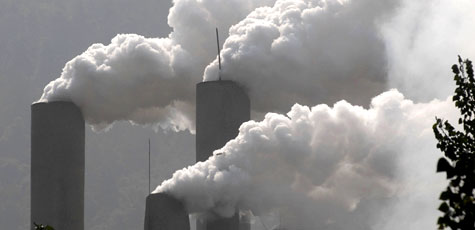Rising prices for carbon dioxide (CO2) emissions rights brought in 2.4 billion euros (2.9 billion dollars) for the German treasury in the first six months of the year, the emissions trading office reported on Monday.
The figure compares with 2.7 billion euros for the whole of last year. The record to date of 3.2 billion euros in 2019 could be surpassed.
The certificates have to be purchased by power stations and industry emitting large quantities of greenhouse gases. Additional certificates can be purchased through auctions on the energy exchange based in Leipzig, where the price has been rising over recent months.
Last year a certificate for emitting a ton of CO2 cost on average just under 25 euros. That rose to 33 euros in January and to as much as 52 euros by June.
Part of the reason for the rise lies in the reduction in the number of certificates made available with the aim of providing incentives for investment in cutting emissions.
The rise, along with higher prices for fuels, is helping to drive up electricity prices. The wholesale price for electricity has now reached highs not seen since 2008.
Income from selling CO2 certificates is only part of the income from emissions trading. Considerably more money is brought in from transport and heating. Since the start of the year, 25 euros per ton of CO2 has been imposed on liquid fuels, heating oil and gas.
The Finance Ministry is anticipating income from this source at more than 7.4 billion euros this year. This is set to rise, as the CO2 price is to be increased to 55 euros per ton by 2025.

